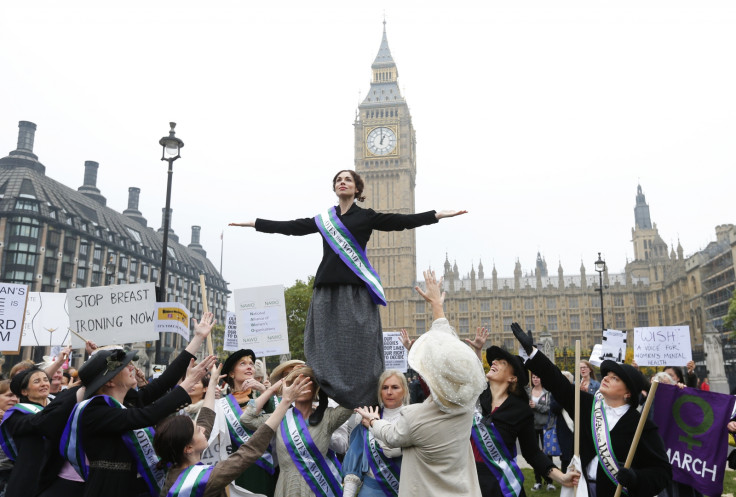International Women's Day 2016: How to Pledge for Parity in the workplace

Scotland's record on female employment is among the best in the EU and we have the lowest gender pay gap in the UK – dropping 1.8 percentage points over the last year. The number of young women taking up modern apprenticeships has increased and there are more women in further and higher education than men – reflecting the fact that women make up more of the population.
However, at the moment, women are over-represented in lower-paid professions. 57% of women in work are in such employment, as opposed to 37% of men, and they are under-represented in the workplace generally – especially in senior positions. That can often be because they settle for jobs that they are overqualified for, just because the hours work around their obligations.
The flip side to that is that for every mother that returns to work at a lower level, there is an employer – who has possibly invested significantly in her training and development – who has to recruit and train a replacement.
It is abundantly clear to me that it is not just a moral imperative to achieve proper representation of women in the workforce. If we are to continue to grow and expand our economy, providing skilled employees for our industries, it makes good business sense to be able to draw from as wide a pool of potential job candidates as possible.
The discussions I have had with business leaders – especially those in areas with a skills shortage – shows that they see any remaining notion of girls' jobs and boys' jobs as nonsense and an unhelpful barrier to them attracting and retaining the best people for the job.
These perceptions are outdated and are slowly being left behind, but we must also make sure that the young women coming through our nurseries, schools, colleges and universities know the full range of opportunities available to them.
There is an incredible amount of good work being done to redress the balance in industries that have traditionally been skewed one way or the other and we all have a part to play in this.
As part of Scottish Apprenticeship Week 2016 I met with young women going into the construction industry. They spoke passionately about following a career path that interested them. They also made clear that having role models to look up to was important and they had benefitted greatly from a mentoring scheme within the company which paired them with someone to inspire them as well as offering practical support from someone with experience in the industry.
At Microsoft I met school pupils taking part in an innovative programme dedicated to encouraging more girls to challenge convention and pursue digital careers. 'Girls into Digital World' clearly shows that a career in digital technology is one participants can identify with and see as a serious option for their future, by meeting inspirational women in the technology sector.
The importance of role models was echoed by the students I met at City of Glasgow College studying on a pioneering Women into Engineering course. This is run in addition to other mixed gender engineering courses and the students I spoke to had differing reasons for choosing the single sex option. Some felt that there would be greater support as the class is smaller than some of the mixed classes, which would reduce any intimidation they may feel for not having the practical experience that they assumed the male students might have.
While there were a variety of contributing reasons, the unanimous views was that the all-female class had created a really positive and supportive atmosphere, with the certainty that they weren't going to face any opposition based on their gender. This year the taster day attracted more than 300 applications, with the college having to restrict attendance to around 130. This is incredible progress.
Construction, science, engineering and technology are just some of the areas we know are crying out for skilled new talent. They contribute billions to our economy and our expertise has earned us global recognition. Remaining a world leader in these industries relies on us encouraging those people coming through, both female and male, to maximise their potential.
Research also indicates that if there were as many women-led businesses as that of men, our economy would be boosted by as much as £7.6bn ($10.7bn, €9.8bn) . There is clearly an economic case for encouraging more women to start and grow their own enterprises.
As a government we are leading the way with a gender balanced cabinet. As of March 2016, over 90% of Scotland's public bodies, 54 third sector organisations and 31 private companies have signed up to meet the First Minister's Partnership for Change commitment to have 50:50 gender balance on their boards by 2020.
International Women's Day allows us to look at how far we have come in delivering gender equality and gives us an opportunity to consider the best ways to continue toward true parity.
The young women I meet today give me great cause to be optimistic. They have not inherited ideas about jobs for boys or girls. Today's generation rightly believes that if they work hard they can achieve their goals. Our responsibility is to live up to that and open up the routes for them through education, employment and empowerment.
Annabelle Ewing is Minister for Youth and Women's Employment in Scotland
© Copyright IBTimes 2025. All rights reserved.




















